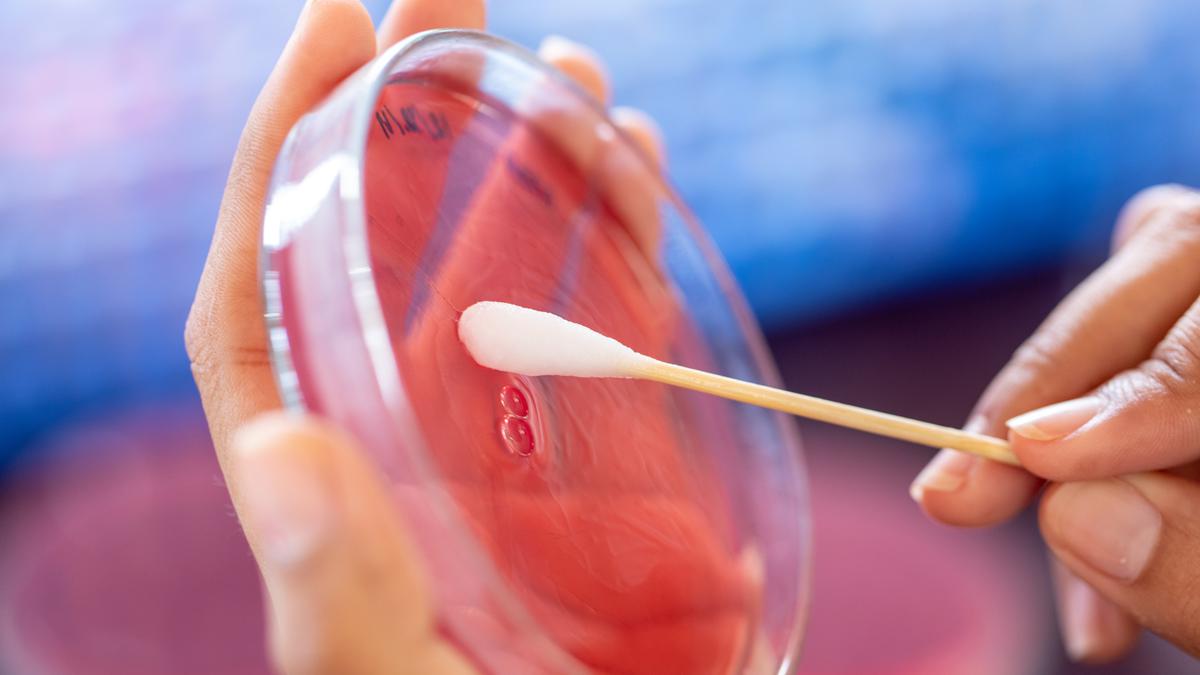
Next generation of medics leading the fight against AMR Premium
The Hindu
A new initiative by AMR Declaration Trust and Rotaract Medicrew aims to empower medical students with the knowledge and tools to tackle the global health challenge of antimicrobial resistance.
The discovery of antibiotics in the early 1920s was no doubt a quantum leap in humankind’s ability to treat and cure diseases that were otherwise fatal. The ability of antibiotics to fight bacterial infections is, of course, common knowledge. However, it is still not common knowledge that these life-saving drugs are being misused and overprescribed for conditions that do not require their use. As a result of this, a multitude of other factors, and the overuse of antibiotics in the animal and poultry sectors, the world is on the brink of a crisis where these powerful drugs have become ineffective because pathogens have developed resistance.
(For top health news of the day, subscribe to our newsletter Health Matters)
In a recent paper titled ‘A mini-review of the burden of antimicrobial resistance and its regulation across one health sector in India’ published in the Journal of Agriculture and Food Research (March 2024), Vijay Pal Singh et al. try to present an overall picture of the scenario in India. The authors note that challenging factors that contribute to the AMR burden in India include a high prevalence of infectious diseases, incompatible infection prevention control practices, a stretched public health system, easy access to antibiotics without prescriptions (in 2010, India was the largest user of antimicrobials among the BRICS (Brazil, Russia, India, and China) countries), insufficient standardised effective surveillance platforms to track drug-resistant patterns and consumption, insufficient knowledge and awareness, and limited laboratory resources for disease-based diagnosis.
With this in mind, a collaborative venture was begun between the AMR Declaration Trust and Rotaract Medicrew. This effort will help the next generation of medical professionals answer the challenge of antimicrobial resistance by integrating cutting-edge stewardship into their education and practice. This renewed effort was initiated to broadcast widely a message on dealing with antimicrobial resistance and to literally saturate different medical and allied groups with information about the importance of talking about and preventing antimicrobial assistance in the community and hospitals.
This initiative aims to empower medical students with the knowledge and tools to tackle this global health challenge. This collaboration merges the expertise of an NGO dedicated to and focused on AMR with that of one of the most significant medical student organisations worldwide, setting a new benchmark for spreading education about anti-microbial resistance in the community, among doctors, and among the public.
Also Read: A manifesto for tackling the silent pandemic of Antimicrobial Resistance
The project, titled ‘Prescriber Today, Steward Tomorrow’, is a testament to the belief that early education in medical training can play a crucial role in shaping a future where antimicrobial stewardship is not just encouraged but embedded in the fabric of healthcare practice, says Abdul Ghafur, infectious diseases specialist and founder of the AMR Declaration Trust. By integrating comprehensive training on AMR and AMS into the medical curriculum, the initiative seeks to instill an understanding of the rational use of antibiotics among the medical professionals of tomorrow. The recent event underscored the importance of a collective approach to addressing AMR. Participants explored innovative strategies for antibiotic stewardship, especially in resource-constrained environments, and discussed how policy and advocacy could amplify the fight against AMR on a global scale, he said.

West Bengal government and Centre are not keen for resumption of MGNREGA, despite Calcuttal HC order
Calcutta High Court orders resumption of MGNREGA in West Bengal, but state and Centre show reluctance, impacting workers.





















 Run 3 Space | Play Space Running Game
Run 3 Space | Play Space Running Game Traffic Jam 3D | Online Racing Game
Traffic Jam 3D | Online Racing Game Duck Hunt | Play Old Classic Game
Duck Hunt | Play Old Classic Game










